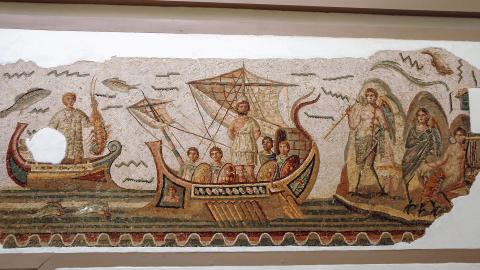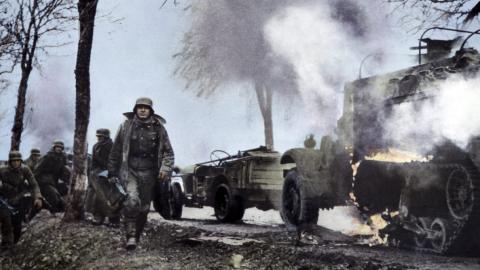Lusitania is torpedoed
On the afternoon of 7 May 1915, the British ocean liner Lusitania is torpedoed without warning by a German submarine off the south coast of Ireland. Within 20 minutes, the vessel sank into the Celtic Sea. Of 1,959 passengers and crew, 1,198 people were drowned, including 128 Americans. The attack aroused considerable indignation in the United States, but Germany defended the action, noting that it had issued warnings of its intent to attack all ships, neutral or otherwise, that entered the war zone around Britain. When World War I erupted in 1914, President Woodrow Wilson pledged neutrality for the United States, a position that the vast majority of Americans favoured.
Britain, however, was one of America's closest trading partners, and tension soon arose between the United States and Germany over the latter's attempted quarantine of the British Isles. Several U.S. ships travelling to Britain were damaged or sunk by German mines, and in February 1915 Germany announced unrestricted submarine warfare in the waters around Britain. In early May 1915, several New York newspapers published a warning by the German embassy in Washington that Americans travelling on British or Allied ships in war zones did so at their own risk. The announcement was placed on the same page as an advertisement of the imminent sailing of the Lusitania liner from New York back to Liverpool.
The sinkings of merchant ships off the south coast of Ireland prompted the British Admiralty to warn the Lusitania to avoid the area or take simple evasive action, such as zigzagging to confuse U-boats plotting the vessel's course. The captain of the Lusitania ignored these recommendations, and at 2:12 p.m. on 7 May the 32,000-tonne ship was hit by an exploding torpedo on its starboard side. The torpedo blast was followed by a larger explosion, probably of the ship's boilers, and the ship sunk in 20 minutes. It was revealed that the Lusitania was carrying about 173 tons of war munitions for Britain, which the Germans cited as further justification for the attack. The United States eventually sent three notes to Berlin protesting the action, and Germany apologised and pledged to end unrestricted submarine warfare.
In November, however, a U-boat sunk an Italian liner without warning, killing 272 people, including 27 Americans. Public opinion in the United States began to turn irrevocably against Germany. On 31 January 1917, Germany, determined to win its war of attrition against the Allies, announced that it would resume unrestricted warfare in warzone waters. Three days later, the United States broke diplomatic relations with Germany, and just hours after that the American liner Housatonic was sunk by a German U-boat. On 22 February, Congress passed a $250 million arms appropriations bill intended to make the United States ready for war. In late March, Germany sunk four more U.S. merchant ships, and on 2 April President Wilson appeared before Congress and called for a declaration of war against Germany. On 4 April, the Senate voted to declare war against Germany, and two days later the House of Representatives endorsed the declaration. With that, America entered World War I.








